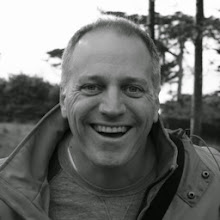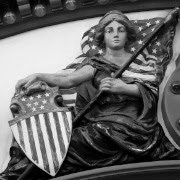This week saw the loss of two of humankind’s best, followed by the departure of one of the world’s worst villains. I’ve written a brief reflection regarding Václav Havel below, and will try to get to commenting on Christopher Hitchens’ and Kim Jong-Il’s passing when I can manage to seize a bit more time. (Joshua Treviño probably framed the odd trio of passings best: “I’d like to think God let Havel and Hitchens pick the third.”)
Václav Havel, Czech playwright and dissident who inspired millions with the courage of his convictions and went on to lead a liberated Czech Republic after the 1989 fall of Communism across Eastern Europe, succumbed to a long respiratory illness and passed away last Sunday. As one who loves and celebrates liberty, and whose mother’s parents were Czechs who emigrated to France in the 1920s, I feel a strong appreciation of Havel’s acts of steadfast courage in the face of gloomy odds. The Czech story in the 20th century was an especially sad one: Just as Czechs began to loosen the shackles of over two decades of self-inflicted communism during the Prague Spring of 1968, Soviet forces invaded and imposed a stricter communist regime that halted the liberalization. This, in a once free and democratic nation.
I will always remember a several days’ visit with my parents and sister to what was still “Czechoslovakia” in 1985, during which we managed to see Prague and a bit of Plzeň, and visit some extended family. The Prague of the time was the gloomiest place I had ever been, gray and desolate with the scaffolding and rubble of languishing construction projects, and their accompanying “5 year plan” signage, everywhere. Restaurants were nearly empty, and it seemed as if people rarely left their homes. One cousin, who worked for a television station, was afraid to be seen meeting with Americans. Years later, we heard of his disappearance; the family suspected he had been taken to a labor camp, as commonly happened to political dissidents during that time. Everywhere along the roads, propaganda billboards proclaimed the virtues of Communism, or the vices of Capitalism, in their characteristic style, yet the world around them seemed still, unmoving, almost abandoned. (I recall feeling my stomach sink years later, on seeing a familiar Czech anti-capitalist poster in the home of a left-leaning work colleague — another of the many signs I’ve seen, of the Western left’s misguided admiration for the malignant ideology of communism.) I recall the generous and unreserved hospitality of cousins who welcomed us into their homes, and one cousin’s fascination with the under-the-hood workings of what we thought of as our very simple, run-of-the-mill rental car — a Ford sedan with a modest 4-cylinder engine. It was a fascinating marvel to him, like nothing that the state auto manufacturer, Škoda, produced. And perhaps most of all, I remembered the presence of armed soldiers throughout the country, and in particular guarding the borders, where they searched the trunks of cars not only entering but leaving the country. My teenage angst was put into its proper perspective by contact with people who did not enjoy the freedoms and standard of living that I foolishly took for granted. I remember thinking, if one was ever to feel so gloomy about the world as to think life was not worth living, it would be a far better thing to risk one’s life helping people who wished to to escape a place like this. Within years, that kind of action became unnecessary. The collapse of Soviet communism gave Czechs and Slovaks another chance at freedom, and they seized it as well they should. I had the opportunity to return to Prague in 2005, for a few days after Christmas, and it gave me great joy to see the city revitalized, alive, thriving, and free. For leadership that helped make that dream a reality, and courageous persistence that kept a candle of hope lit through the many dark years before it could be realized, today’s free Czechs will forever be in Havel’s debt. The world has too few who share his deep devotion to freedom and commensurate dedication to advancing it, and he will be greatly missed.
Two noteworthy Havel quotes from my Quotes page:
On economics:
Though my heart may be left of centre, I have always known that the only economic system that works is a market economy… This is the only natural economy, the only kind that makes sense, the only one that can lead to prosperity, because it is the only one that reflects the nature of life itself.
Evil must be confronted in its womb and, if it can’t be done otherwise, then it has to be dealt with by the use of force.





